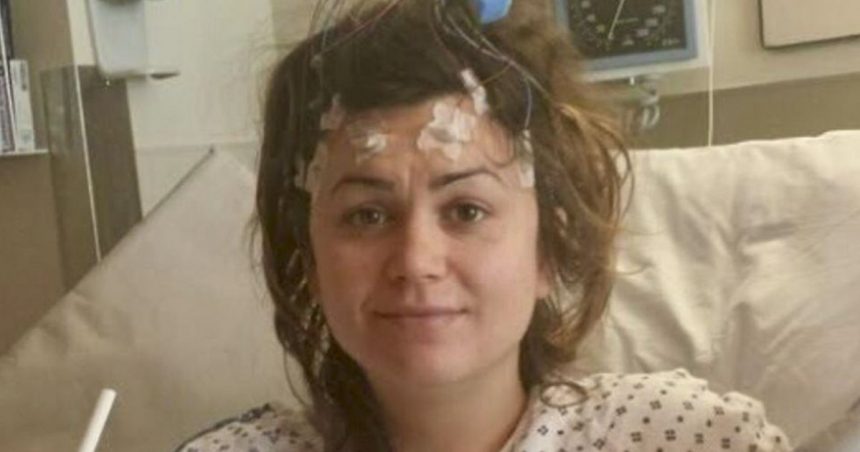Woman Nearly Dies After Herpes Virus Infects Her Brain
Herpes, also known as HSV-1, is a common virus that most people associate with cold sores. However, what many may not realize is that in rare instances, this virus can travel to the brain, leading to a high risk of permanent damage and even death. This is the harrowing experience that one mom and high school teacher went through, luckily surviving to share her story.
Brigid Ward’s Story
Brigid Ward, a single mom of two and high school teacher, had only experienced two cold sores in her lifetime before her ordeal. In October 2015, she began feeling unwell and initially attributed it to seasonal allergies and exhaustion. However, things took a turn for the worse when she started experiencing intense headaches and hallucinations, including hearing voices and seeing things like bats flying around her room.
Concerned, she sought medical help and was eventually diagnosed with herpes simplex virus encephalitis, a rare condition where the herpes virus infects the brain. Prompt treatment with antivirals was crucial to prevent permanent brain damage, coma, or death.
Herpes Simplex Encephalitis
Herpes Simplex Encephalitis is a neurological disorder that occurs when the herpes virus travels to the brain, leading to symptoms such as headaches, fevers, drowsiness, and weakness. While rare, this condition can be life-threatening if not treated immediately.
Treatment and Recovery
Brigid underwent treatment with acyclovir and other medications to manage her symptoms and aid her recovery. It took weeks of intensive care and home visits from nurses before she could slowly regain her strength and resume normal activities. Despite her recovery, she still struggles with fatigue, brain fog, and memory issues, but she remains resilient and grateful for each precious moment with her loved ones.
Brigid’s experience has taught her to cherish the little things in life and to be mindful of her health and well-being. She encourages others to appreciate the present moment and to prioritize self-care and time with loved ones above all else.
Sources: Huffpost, Rare Disease






